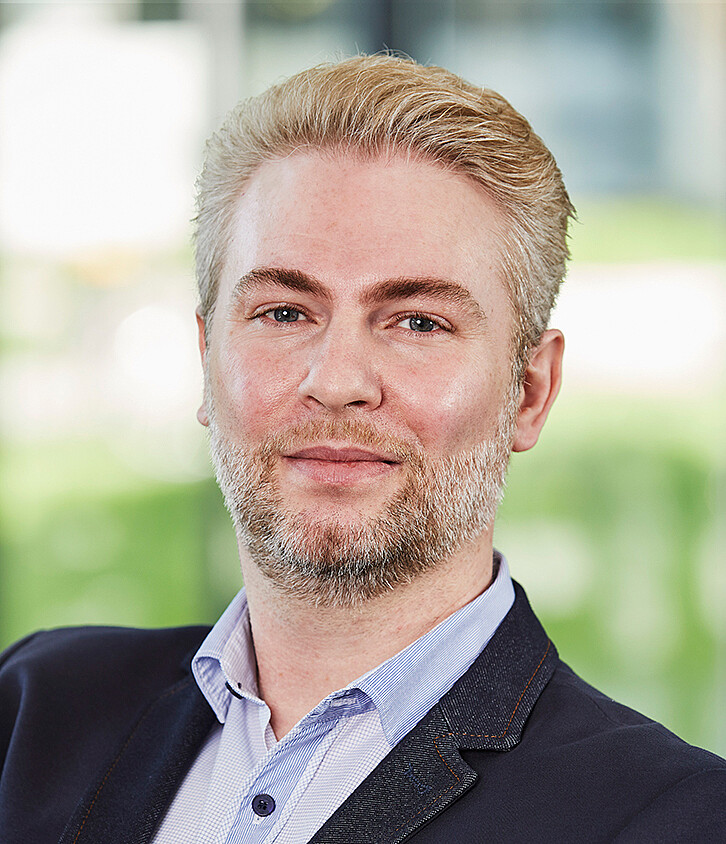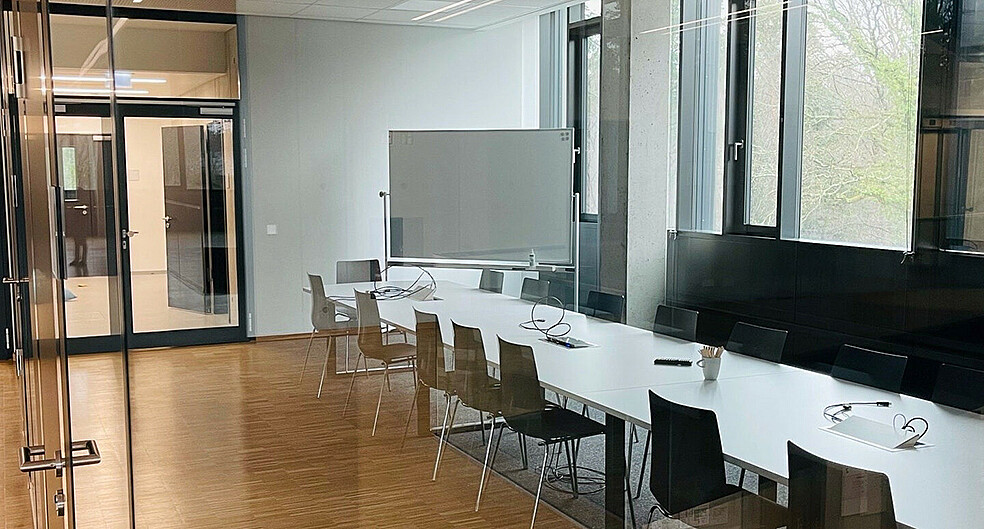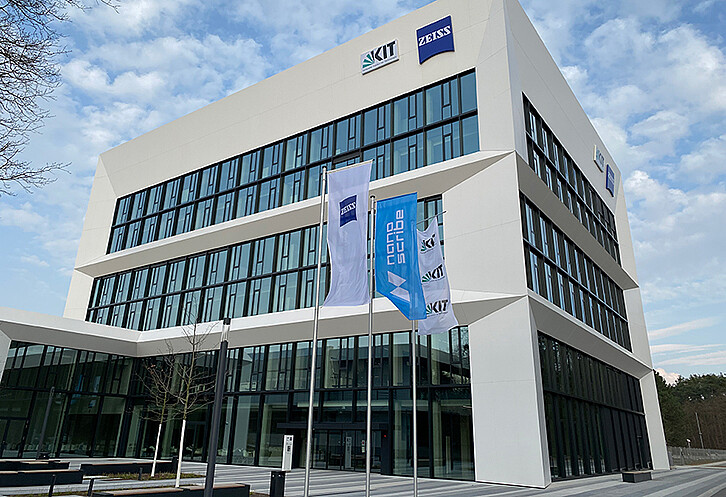Published on May 05, 2022
Professions in technology transfer: Incubator management

KIT supports on-site start-up projects of students, employees, and alumni of KIT not only in an advisory capacity, but also with space offers such as the high-tech incubator in the ZEISS Innovation Hub. Here, young companies and teams in the pre-founding phase find a place to develop and grow in an established environment. In the truest sense of the word, an incubator is the breeding ground for good ideas.
Teams can start their spin-off under excellent conditions by being provided rented laboratories or office space and the associated infrastructure equipment. Here, especially scientific start-up teams find a laboratory setup that they would otherwise only be able to set up in the start-up phase at considerable financial expense. At KIT, two incubator locations are currently available under the umbrella of “KIT-Gründerschmiede”. An incubator manager on site takes care of the concerns of spin-offs and founding teams that are interested in the incubator or are already located in the premises. In the interview, KIT's incubator manager Waldemar Korb talks about his diverse daily work and has another appeal for young inventors.

How did you become an Incubator Manager?
Waldemar Korb: The job title as such is not a protected term and is not subject to any fixed requirements. The opportunity to take on this profession arose when the new building at North Campus was completed in 2020 in cooperation with ZEISS. Even before that, the Innovation and Relations Management (IRM) service unit offered rental space in line with the incubator model and was able to open up new spaces with the new building.
After long consideration within IRM whether to manage the new incubator from the main campus administration building or directly on-site, the decision was ultimately made to go on-site. I was then offered the incubator manager position. The decision to take the job was worth its weight in gold!
Why did you choose a career in technology transfer?
Waldemar Korb: It's simply fun and a pleasure to accompany young, enthusiastic people and see them grow: They decide to start their own business and have the courage to develop something - especially in such challenging times as the Corona pandemic.
„To be a part of that process is just incredible. The colorful mix of companies on the market and the fact that the young people are incredibly committed to the cause makes it varied and exciting.“
Waldemar Korb
What are the requirements for this profession? What skills should you have?
Waldemar Korb: I have graduated in economics and taxation, so I studied finance. I would say that a certain affinity for numbers is an advantage in the job. For example, the distinction between gross and net, or how to measure what is exempt from sales tax. Likewise, a communicative streak is advantageous in order to be able to provide service-oriented support to all companies and tenants, who all have different conditions. A basic technical understanding certainly helps, too. For example, I take care of material procurement for the chemistry and physics labs.
What exactly does your job as incubator manager involve?
Waldemar Korb:
In my multifaceted job, it is important to perceive many levels of the process chain at KIT and the service units. It can start with me distributing mail, as we are not connected to the KIT mail network. My everyday work also includes, for example, minor maintenance measures in the rooms, such as a fuse replacement. Being well networked is also important here, as I have to contact the right people in case of technical problems that I can't solve myself.
Additionally, I am responsible for renting out space for internal and external interested parties. This is also where other available rooms in the ZEISS building come into play. In addition, I am involved in company networking through events held here. I am a link, so to speak, between KIT spin-offs and other companies in the building.
Due to the profound connection of the incubator at KIT, certain administrative activities occur regularly, including, for example, accounting. Looking at the figures is also important for KIT overall: I am obliged to provide information about the economic efficiency of the entire project, for example to the KIT Vice President for Transfer and International Affairs.

Why does KIT need an Incubator Manager?
Waldemar Korb: In order for an incubator to offer the best starting conditions and to guarantee a smooth process, a contact person on site is essential. For the purpose of shortening processes, I can, for example, take care of administrative matters such as renting, booking meeting rooms or events. Overall, the ZEISS building is also very suitable for external companies as a representative event location and is very popular as an innovation base. There are currently two incubators at KIT. The interest is currently very high and we plan to expand the offer in the future.
What do you like about your job?
Waldemar Korb: I like that the job as an incubator manager has a high variety. I take care of external and internal companies, maintain labs, prepare rooms for meetings and events, and initiate communication with companies. In the incubator environment, people are usually as positive and forward-thinking as I am. It is a pleasure to share this passion. From my experience, I can say that the founding teams at KIT are well taken care of. In the incubator, I can especially participate in the initial development push. It is not uncommon for teams to go through a complete innovation process in one or two years and then be on the market very quickly.
I encourage young people who think: "I am not alone in founding a company and do not have to carry everything on my own shoulders. At KIT, there are competent contact persons of the “Gründerschmiede” who will actively support you. There are more than 23,000 students at KIT: Many are eager to bring their idea to the market and I hope there will be even more.
The interview was conducted by Dominic Mack.

comments about this article
No Comments